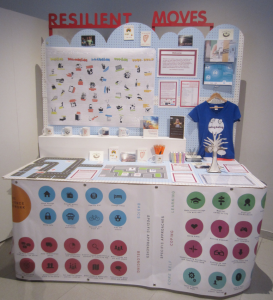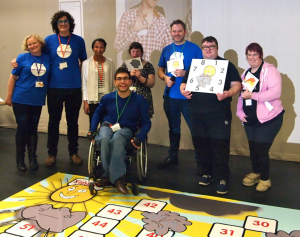Summary of the impact:
The Resilient Therapy model, co-produced with vulnerable children and adults and those who support them, is based on a review of evidence of what promotes resilience. It is informing whole systems approaches in research, schools and across local areas in the UK and globally.


The full story
Resilient Therapy (RT) is an approach to building resilience in disadvantaged families and marginalised groups, developed by Professor Angie Hart and colleagues from collaborative research with over 120 practitioners, parents and young people with complex needs. It was a response to gaps in systematic synthesis of practical resilience interventions and approaches with disadvantaged children and families. Early research demonstrated that conventional “expert-client” therapeutic approaches needed to be challenged. A review of over 1,000 publications on resilience was undertaken and, drawing on previous research on inequalities, an ecological and social justice-based embedded ‘therapy’ approach “Resilient Therapy”, underpinned by the Resilience Framework (RF) was developed. Subsequent collaborative research initiated and evaluated the adoption and adaptation of RT across a range of practice arenas including adoption, fostering, mental health and learning disabilities. These resulted in the generation of new knowledge about not only context-specific resilience building, but about the importance of co-production for enabling this to be realised. The research underpins the work of Boingboing Resilience CIC and University of Brighton (UB) Centre of Resilience for Social Justice (CoRfSJ). It has been built on to develop the Academic Resilience Approach (ARA) and co-produced resilience materials for young people. More details of the ongoing development, validation and embedding into practice of the Resilient Therapy approach can be found at www.boingboing.org.uk.
UK impacts include use of the approach in over 20 local authorities, with 8 intensifying its application. These include a whole town ‘Resilience Revolution’ approach in Blackpool and Newham, HeadStart implementing ARA in all schools. The RF is being integrated into the UK Church School (4,700 schools) inspection framework. The development of a toolkit– ’Supporting Young People in their Mental Health’ in partnership with East Sussex County Council has been developed as an international schools’ resource. A range of practitioner training, recognised by professional development schemes and potential for postgraduate credits at UB, have been developed.
Internationally, research in Spain, Italy, Denmark, Sweden, Greece, Germany, Croatia, Turkey, Malaysia, South Africa, Australia and New Zealand have used RT, and RF translations are being used in nine other languages. Universities of Osnabrück and Heidelberg have published evidence of better student outcomes via RF. It has underpinned co-productive research on resilience to drought with young people in South Africa, where the ARA is being embedded across all Durban schools (www.brighton.ac.uk/leandra).
Resources:
Resilience Framework Table
Resilience Framework Graphic
Quotes from beneficiaries and partners:
“It was really helpful to see the practical, effective “little details” that can be changed (and how!) to cause a bigger step-change in thinking across schools.” Teacher, Blackpool Aspire Academy
“Very inspirational…Looking forward to getting on with the “Ordinary Magic.” Conference participant, Kent
“Combining academic evidence with people’s experience of real life struggles to get the best out of both kinds of knowledge.” Student, Boingboing volunteer
“I found it helpful to use the Resilience Framework to reflect on one of my main case studies and then to consider the next resilient move.” Social worker, Blackpool
“For me, the glue that binds all of this work, is the Professorial leader’s relentless focus on social justice and enlisting people to not only challenge the structural inequalities that exist in our society but to do something about them. I feel honoured and privileged to be working alongside her in helping my community to thrive in the face of adversity.” Pauline Wigglesworth, Blackpool Council